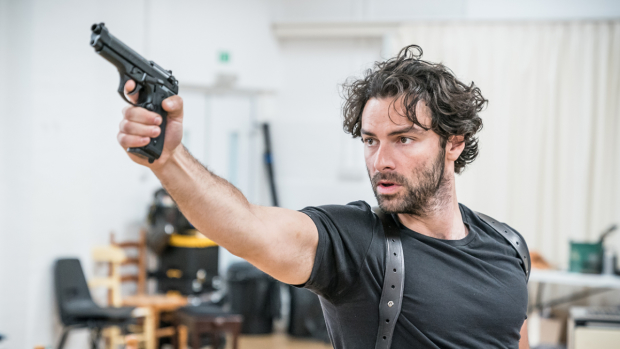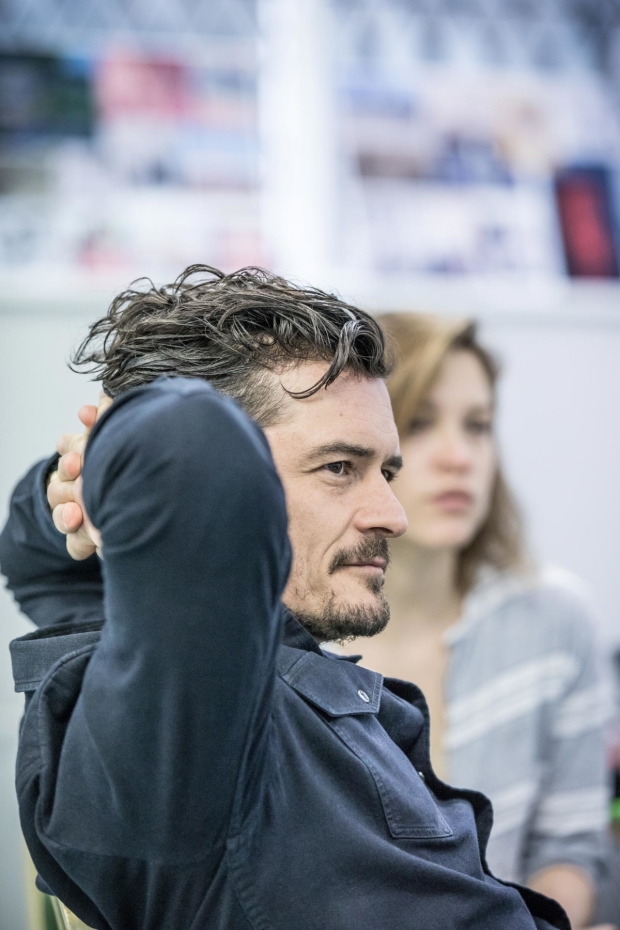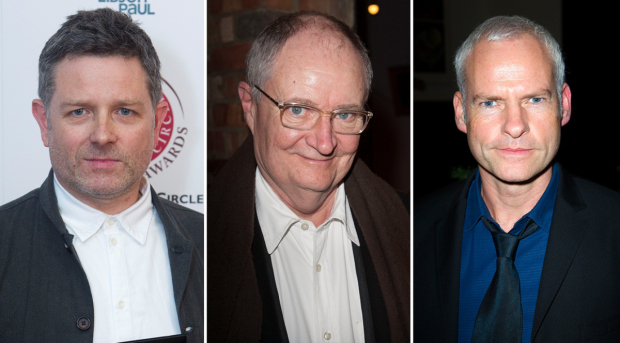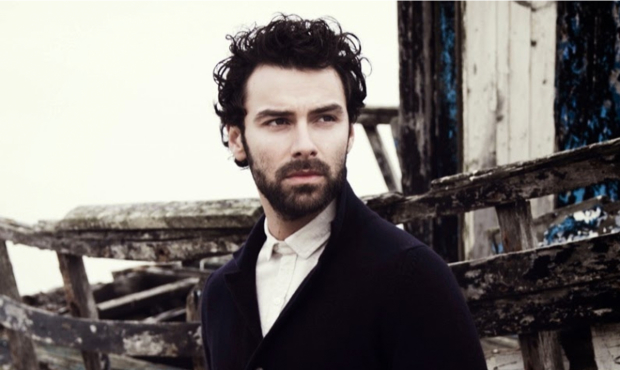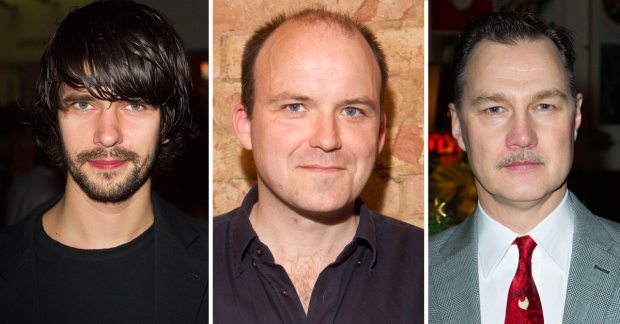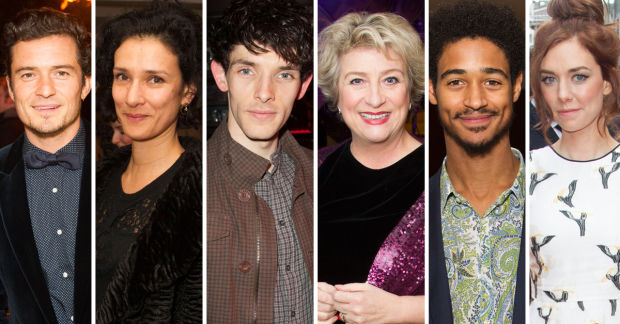Aidan Turner on Poldark, his latest play, objectification and loose retinas
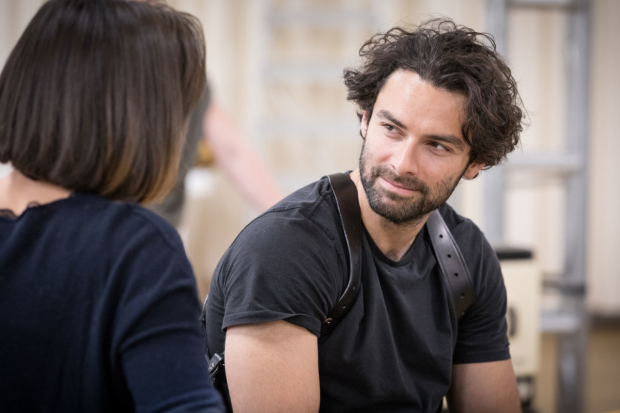
© Marc Brenner
Aidan Turner is telling me about loose retinas. Thankfully the 35 year-old actor and star of BBC TV series Poldark isn't suffering from one, it's just that in rehearsals for The Lieutenant of Inishmore, the play in which he is about to open, he hangs up one of his co-stars by his feet and loose retinas are a legitimate concern.
"Apparently, something like one in ten people have slightly loose retinas and you won't know that until you go bungee jumping, or hang upside down for a considerable amount of time," he explains to me in his soft Dublin accent during a break in rehearsals.
He's talking rather jollily about the infamous first scene in Martin McDonagh's play, where Turner's character Padraic – a man so prone to violence that the IRA won't even have him – tortures someone whilst they are upside down. Padraic, it seems, is a far cry from the passionate, empathetic Cornish Poldark. The play is, I suggest, really quite violent.
'Some people walked out of the original production because of the violence'
"Yes, there's no escaping that," he agrees, "There were people who walked out of the original production because some scenes…" he trails off shyly before I push him to give some idea of what sort of violence we're looking at. "I mean, there's lads who get their nails pulled out and six or eight litres of blood on stage at one point. It's no joke. But it's very funny," he says.
That contradiction is McDonagh all over and Turner is clearly delighted to be offered a break from Poldark by director Michael Grandage to star in this revival – which fits neatly into his filming schedule. Turner explains that McDonagh has been on his radar for a very long time – this play came out the year before he went into drama school in 2002 and it was what 'everyone was talking about'.
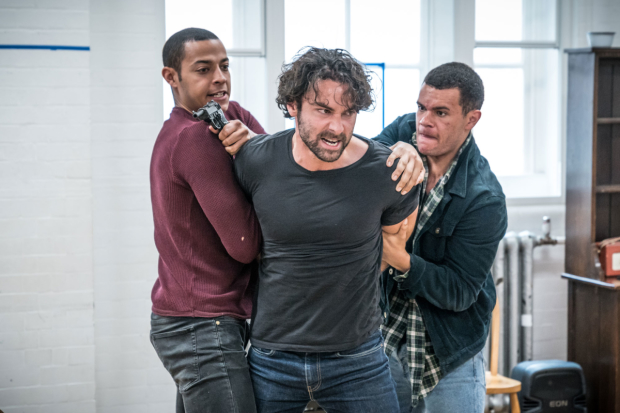
© Marc Brenner
"McDonagh is very good at showing the absurdity of violence," he says, "What you see is that these characters are essentially quite lovely, tender people, who are just in a world where violence really matters." The world of The Lieutenant of Inishmore – the first in McDonagh's Aran Islands trilogy – is a place where violence begets violence. Turner compares McDonagh's ability to make an audience laugh at fairly horrendous things to Trey Parker and Matt Stone's skills on The Book of Mormon. "It's his angriest work," says Turner.
The piece follows Padraic who, during the aforementioned torture, gets a call telling him his beloved childhood pet cat Wee Thomas is ill. He immediately heads off home back to Inishmore to comfort the puss but when he gets there he finds that poor Wee Thomas is more than just a little ill. Padraic promptly heads out to revenge his four-legged furry friend's demise.
'There's something derailed about McDonagh's language'
It's not just McDonagh's hyper-real, satirical and intense depiction of violence that Turner loves. He talks eloquently about writer's ability to capture a sense of outsiders. "He writes well for fringe characters, people who have been locked in their own world for a long time. That's something you see in Ireland." And it's the language too, the poetry of McDonagh's dialogue: "There's something derailed, something slightly off about the way the characters speak to each other and construct sentences. You hear it all the time in Ireland."
And though you might think this role was a chance for Turner to finally rely on his beautiful Irish accent – an accent he is remarkably good at hiding in previous roles like Kili in The Hobbit, Poldark and in his breakout role as Rossetti in Desperate Romantics – he still has to master this one. "There's a flow to the way people talk on the west coast of Ireland, but I have cousins in Galway and Cork, and I had a girlfriend from Cork for years who is still a close friend."
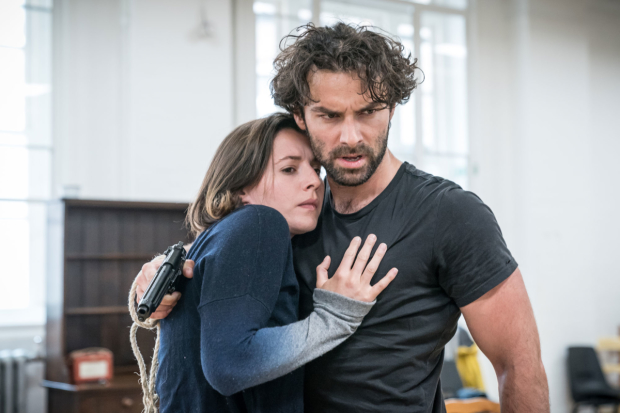
© Marc Brenner
Still, despite the need for all the accent work, it is clear Turner is entirely happy to be gearing up to tread the boards again. "I miss the rehearsal period [when I'm filming], [rehearsals are] so much fun. It just gets better every day you come in. It's so rare that you get an opportunity on set for that. By the time they've set up the lights, everyone's looking at you and you have to just do it," he says.
He's in a break between filming the fourth series of Poldark (which airs this Sunday) and the fifth series, which they will begin shooting on 11 September – two days after the final night of The Lieutenant of Inishmore. It's been five years working on Poldark and Turner is still surprised at just how well it has been received. "It feels surreal to be talking about the last series we will shoot. It's been a lot of fun. Five years is a lot of time for any actor to be doing anything," he says, "by the time we're all done, it will be like we've conquered something significant."
Poldark catapulted Turner into the sort of acting stratosphere that most young performers can only dream of. The wide range of audience it draws (my mother-in-law was more excited about the fact that I was doing an interview with Turner than any other celebrity I've ever talked to) is remarkable. And of course there's been a lot of talk about the way he may or may not have been objectified with the portrayal of that scything scene, brought up again only a week or so ago by Mariella Frostrup. Does it make him feel uncomfortable, I ask him?
'I've never felt objectified from the scenes in Poldark'
"It's a tricky conversation to have. I've had people say: 'Why don't you feel objectified?' But I've never felt it from this show. [Being shirtless] wasn't in the script, but it was summer and I was wearing all this stuff and I actually thought – this looks a bit mannered. I didn't realise what a big thing it was going to be," he says, "And it was a really critical, emotional scene so I feel that was glossed over a bit."
Despite not feeling objectified himself, he does still get the 'double standards thing' he says, and he also explains that people have said things to him where if it was a gender reversal it might sound very different. "But everyone is different," he says.
His fans, however, are in the most part 'quite cool' and in fact, he doesn't get stopped on the street as much as you might expect. "I've had a beard for a long time, I've just shaved it, I didn't get recognised at all, so there's something in that."
But what he's really psyched about at the moment is the result of the Irish Referendum. "It was incredible. All eyes are on Northern Ireland and it will be interesting to see what Westminster and Stormont do next," He talks proudly about the fact that the same sex referendum was passed and how Ireland was the first to pass the smoking ban. He campaigned, with other stars, for the yes vote in the most recent referendum: "The landslide gives an indication as to where people's heads are these days, especially the young people in Ireland," he says.
It's the sort of optimism that seems riven through Turner – who smiles broadly and laughs loudly at the slightest hint of a joke. He may easily turn his hand to anything from cheeky dwarves to wayward artists, to violent torturers, to driven Cornishmen, but he's a generous, up-beat Irishman at heart.



